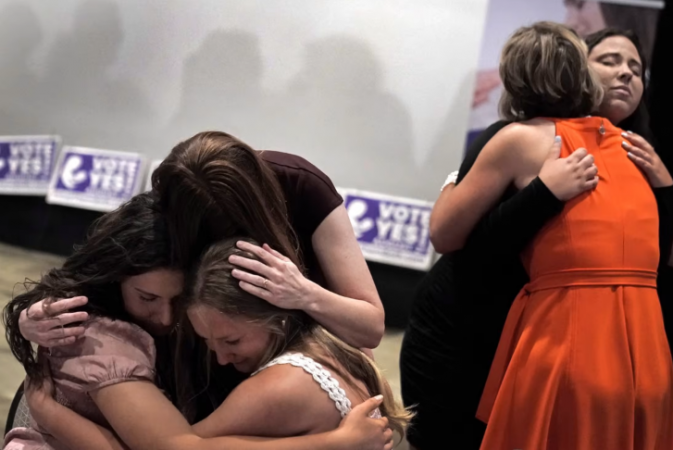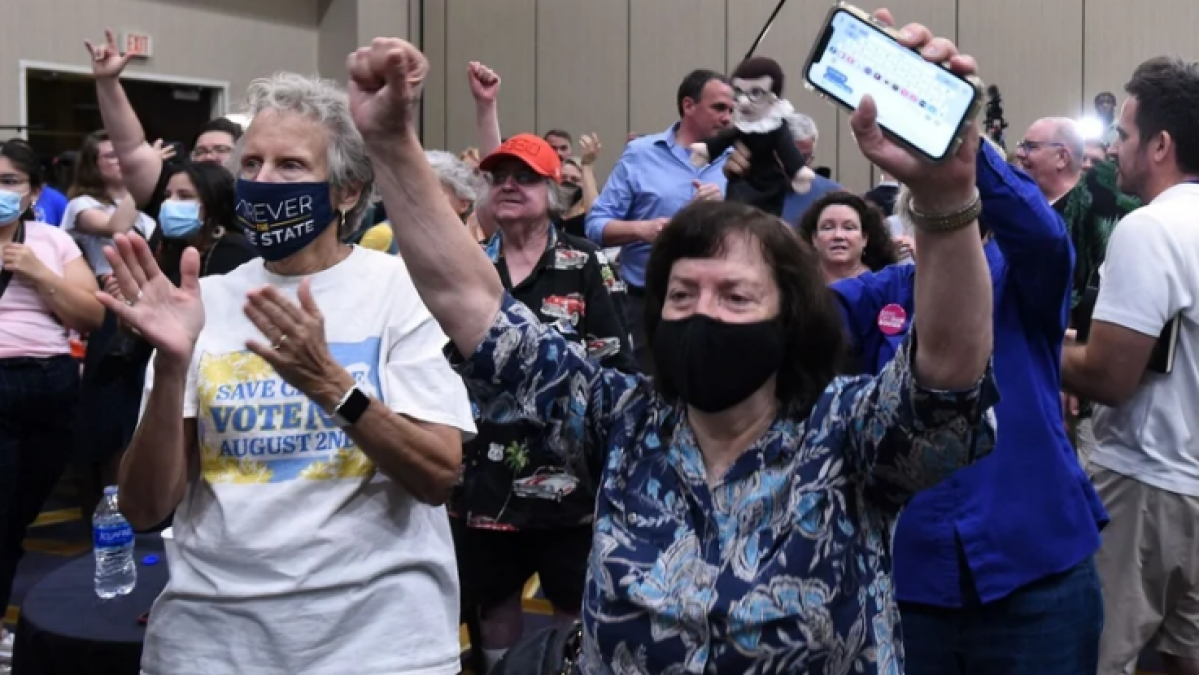
United States: As the first significant election on the controversial topic since the Supreme Court overturned universal access in June, advocates of abortion rights rejoiced as Kansas, a US state in the Midwest, vowed to uphold the right to the procedure. Voted for.
Consensus rejected a constitutional amendment that would have removed language protecting the right of procedure and opened the door to more stringent rules or restrictions.
As Republican-dominated legislatures race to impose tough restrictions on the procedure in the wake of the Supreme Court's decision to overturn Roe v. Wade, the vote was widely seen as a test case for abortion rights.
Abortion rights campaigners and supporters rejoiced at their side's victory in the controversial US debate.
"I'm just next to myself," said Anne Melia, a volunteer for the campaign.
Local media reported that the turnout for this referendum, which ended at 7 pm, was as high as 50%, which is higher than the turnout typically seen in general elections.

President Joe Biden also praised the result. She wrote on Twitter that Consens "used their voices tonight to defend women's right to choose and access reproductive health."
"It's a significant victory for Kansas, but it's also a victory for every American who thinks women should be able to make their own health decisions free of government interference."
He urged Congress to "listen to the will of the American people" and pass legislation codifying abortion rights in a separate statement.
As well as a Congressional midterm election, which both Republicans and Democrats hope to use to mobilize their supporters nationwide, other states such as California and Kentucky are to vote on the controversial matter in November.
The main issue on the ballot in Kansas was a 2019 decision by the state's Supreme Court that ensures access to abortion.
In response, the state legislature, which was dominated by Republicans, proposed an amendment called "Value Them Both", which would have repealed the constitutional right intended to return control of the process to lawmakers.
According to activists from the other camp, a state legislator had already introduced a bill that would ban abortion without exception for rape, incest or except in the life of the mother. He claimed that the campaign was a small attempt to pave the way for such a ban.
According to Ashley All, spokeswoman for Consensus for Constitutional Freedom, the result of Tuesday's referendum was "remarkable".
The woman claimed that "the Consons understood that this amendment would require government control over private medical decisions."
But voter Sylvia Brantley, 60, claimed she supported the change because she thinks "kids matter too."
In the hope that "Kansas would not be a market for killing children," she wanted to see more regulations.
As stated in the ballot question, voting "yes" meant that abortion rights would be restricted, while voting "no" meant that abortion rights would remain unaffected. Activists complained that it was counterproductive and potentially confusing.
While advocates of abortion rights in Kansas may be able to exhale with relief regarding their state, they are still wary of their neighbors, Oklahoma and Missouri, which are among at least eight states that have almost completed The ban is passed. Missouri's ban for rape or incest is no exception, and Midwestern Indiana passed its toughest ban on Saturday.
As a result of the decision in Kansas, abortion will still be legal until the 22nd week of pregnancy.
A 2021 survey by Fort Hays State University found that less than 20% of Kansas respondents agreed that abortion should be illegal, even in cases of rape or incest. Kansas is heavily Republican and supports strict abortion laws.
White House to host meeting of abortion rights activists
US Supreme Court Justice Alito mocks foreign critics on abortion